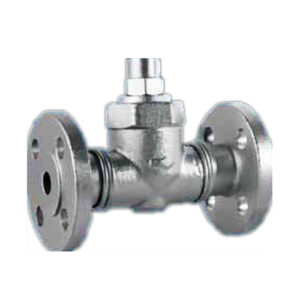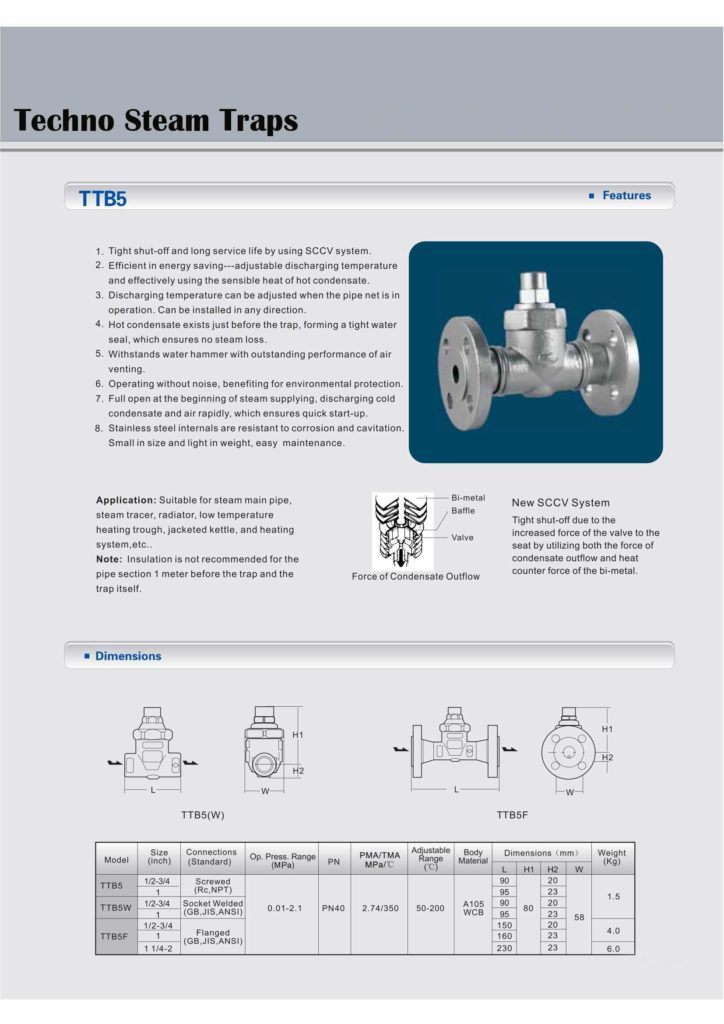TECHNO STEAM TRAPS
Innovative Steam Traps and Condensate Recovery Systems
THERMOSTATIC STEAM TRAP
TB - 5

Detailed Product Description
Automatic Thermostatic Steam Traps With SCCV System PN40 / Casting Steel
Quick Details:
Model: TTB5
Temperature: 425 ℃
Working Media: Steam, Condensate Water
End Connection: Flange, Screw & Socket Welded
Power: Automatic
New SCCV System (self-closing and centering system)
Model Number: | TTB5 |
Standard or Nonstandard: | Standard |
Structure: | Thermostatic Steam Trap |
Pressure: | Medium Pressure, 0.01 – 2.1 MPa |
Power: | Automatic |
Material: | Casting Steel WCB |
Temperature of Media: | Up to 425 Deg. C |
Media: | Steam, Water |
Port Size: | 1/2″ – 2″ |
Body Material: | WCB, A105 |
Connection: | Flange & Screw & Socket |
Specifications:
Bimetallic Steam Trap
New SCCV System
Adjustable Working Temp.
Installed In Any Direction
No Steam Loss With Water Seal
Design Pressure: PN40
Pressure: 0.01 – 2.1 Mpa
Material: A105 & WCB
Temperature: 425 ℃
Working Media: Steam, Condensate Water
End Connection: Flange, Screw & Socket Welded
Thermostatic Steam Trap / Bimetallic Steam Trap
TB5:
- Tight shut-off and long service life by using SCCV system;
- Efficient energy saving —–Adjustable discharging temperature and effectively using the sensible heat of hot condensate.
- Discharging temperature can be adjusted when the pipe net is in operation, can be installed in any direction.
- Hot condensate exists just before the trap, forming a tight water seal, which ensures no steam loss.
- Withstands water hammer with outstanding performance of air venting.
- Operating without noise, benefiting for environmental protection.
- Full open at the beginning of steam supplying, discharging cold condensate and air rapidly, which ensures quick start-up.
Application:
Suitable for steam main pipe, steam tracer, radiator, low temperature, heating trough, jacketed kettle and heating system etc…
Installation Note:
Installation is not recommended for the pipe section 1 meter before the trap and the trap itself.
